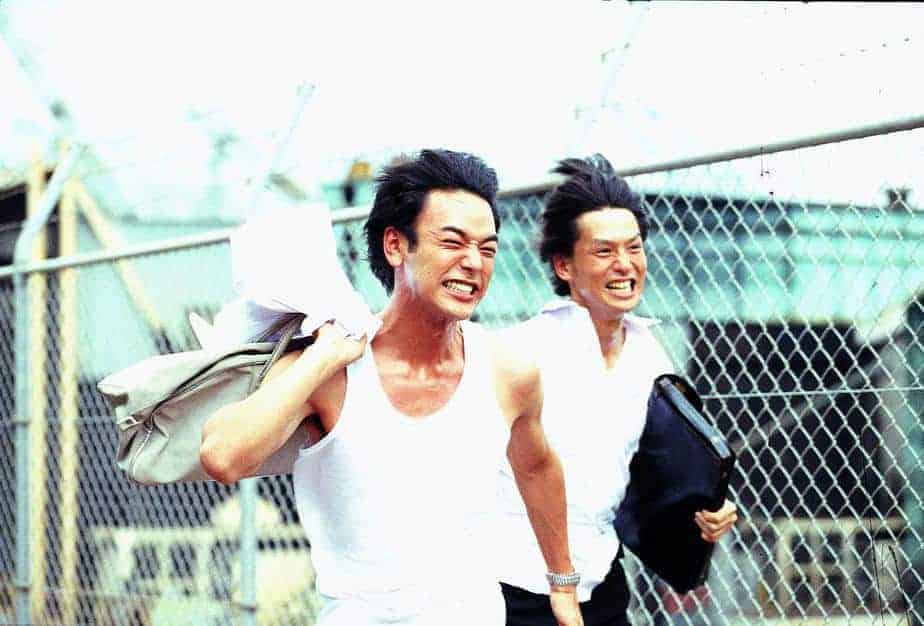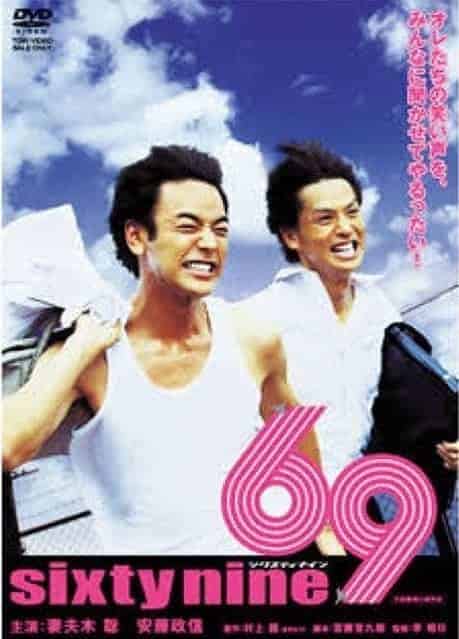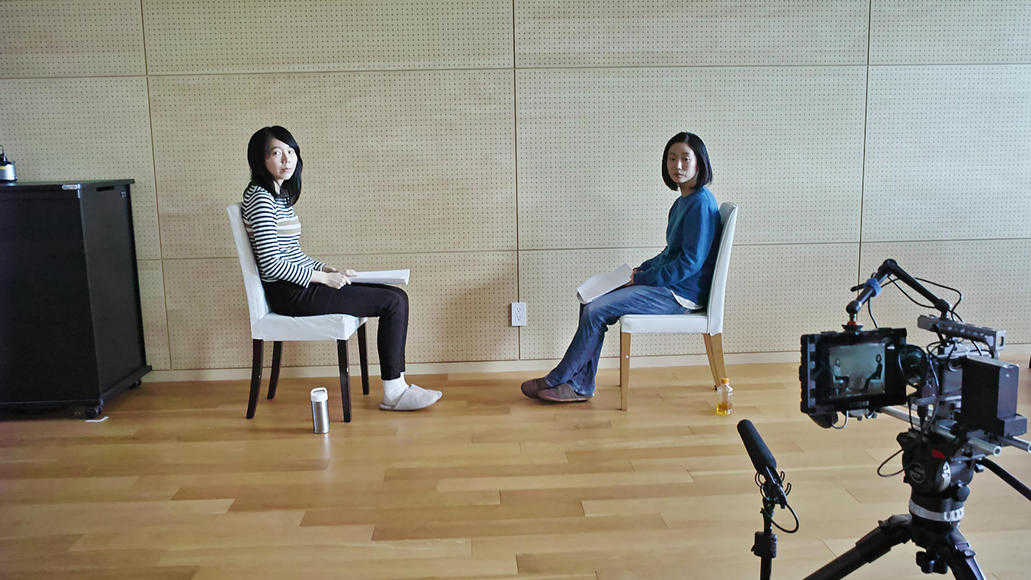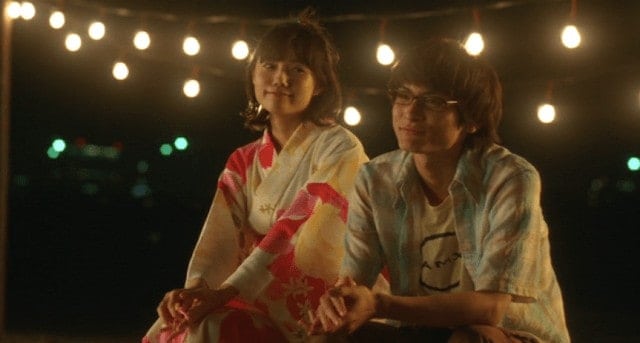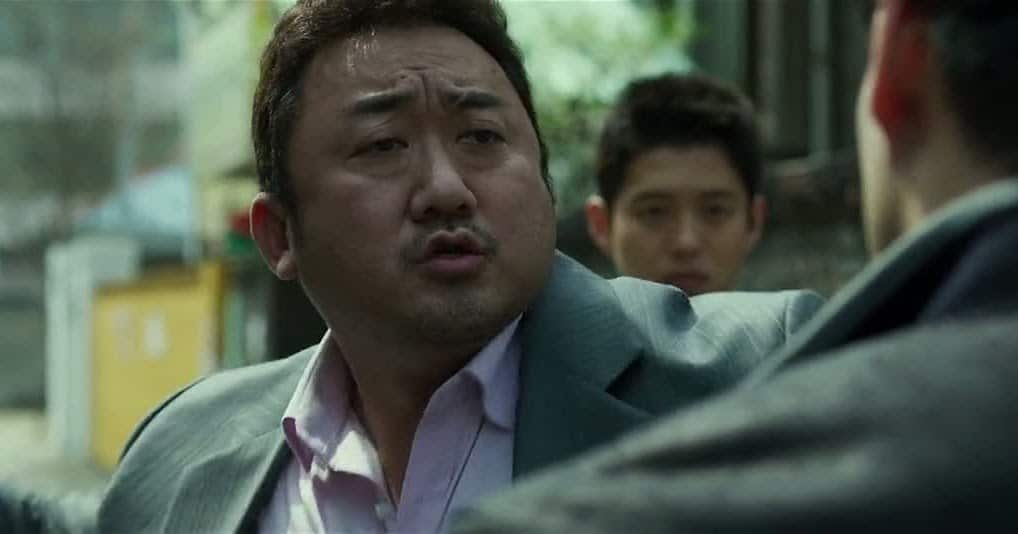Among the tamest novels and subsequently movies based on a Ryu Murakami book, “69” deals with the story of a group of high school students led by the constantly smiling, quite charismatic Ken, who try to find a purpose in their lives living in Sasebo, Nagasaki in 1969.
Buy This Title
The film shows its tone from the beginning, with Ken jumping over the fence of the US base in the area in an “infiltration” perceived by him and his friends as an act of rebellion, while known rock ‘n' roll tracks are heard in the background. Having learnt about the intense student movement that took place the same year, the youths feel inspired, but at the same time realize that they live too far from the events, something that leads them to a number of incidents of overacting. As they are all teenagers, however, their main goal remains the same: to get girls, with particularly Ken trying to appear as cool as possible, mentioning Dylan, Kerouac, Godard and Che as his inspirations, while his frustration over one of his friend's appeal to girls grows continuously, even more so since Adama seems to be an actual intellectual. All the dynamics of the group find their apogee when Ken decides to go after the most beautiful girl in the school, Kazuko “Lady Jane” Matsui, who states that she likes rebellious guys, like the ones protesting in Tokyo. In an effort to woe her, Ken decides to barricade the school and paint leftist slogans all over the building, and convinces his friends to follow him, in a series of events that, inevitably, lead to vandalism. Soon, the archenemy of the group, the gym teacher starts putsing pressure on them and a severe punishment is lurking around. Ken, completely unfazed, starts preparing for a festival that will combine film, theatre and rock music, inspired by Woodstock.
Lee Sang-il directs a film that in essence, focuses on one thing: how adolescent boys try extremely hard to look cool in order to woe girls, and how they end up acting like complete buffoons instead. The fact that their tastes, action and overall way of thinking revolves around this concept is highlighted repeatedly through the movie, through an episodic approach where all episodes are gags. One could easily feel sorry for these boys, both for their attitude and the fact that they live in a small city that is very far away from the events that shook the country, with the fact that the only enemy they can find in their search of someone to stand up too is their own gym teacher, being the highlight of this aspect. However, and particularly due to the fact that they seem to have a really good time and even manage to achieve their misplaced goals, makes them quite likeable to the viewer in the end.
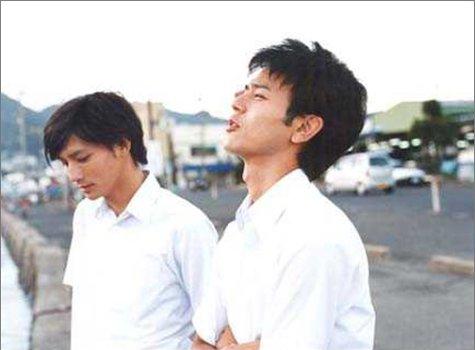
This aspect benefits the most by the casting and the acting, with particularly Satoshi Tsumabuki as Ken highlighting his likeable buffoonness in the best way, through his fittingly hyperbolic performance and his almost constant, quite charming smile. The coolness of Masanobu Ando as Adama works quite well for the narrative in antithetical terms, with the fact that even the smart, mature for his age young man also gets sucked in Ken's shenanigans, intensifying the main message of the movie even more.
On a secondary level, the film also deals with some other topics, like the lack of parenting, the failure of school as an institution and the consequences the presence of the US bases had (has actually) in Japan, although these comments are somewhat lost among the gags.
Kozoa Shibasaki's cinematography highlights the effort of the gang to make the school a “battleground” quite nicely, with his focus being on the realistic presentation of the various settings. Tsuyoshi Imai's editing intensifies the episodic nature of the narrative with his very frequent cuts, while the rather fast pace he implements fits the attitude of the boys to the fullest. Lastly, the rock'n'roll tracks selection is excellent (particularly Cream's White Room and Sunshine of Your Love), with the music, in general, being one of the best aspects of the movie.

“69” is not the best novel of Ryu Murakami neither the best film of Lee Sang-il, and the fact that a film about the 60's is stripped of any elements of nostalgia definitely works against it. However, through Tsumabuki's charisma, the in-your-face buffooness and the music ends up being entertaining and quite pleasant to both eyes and ears.


